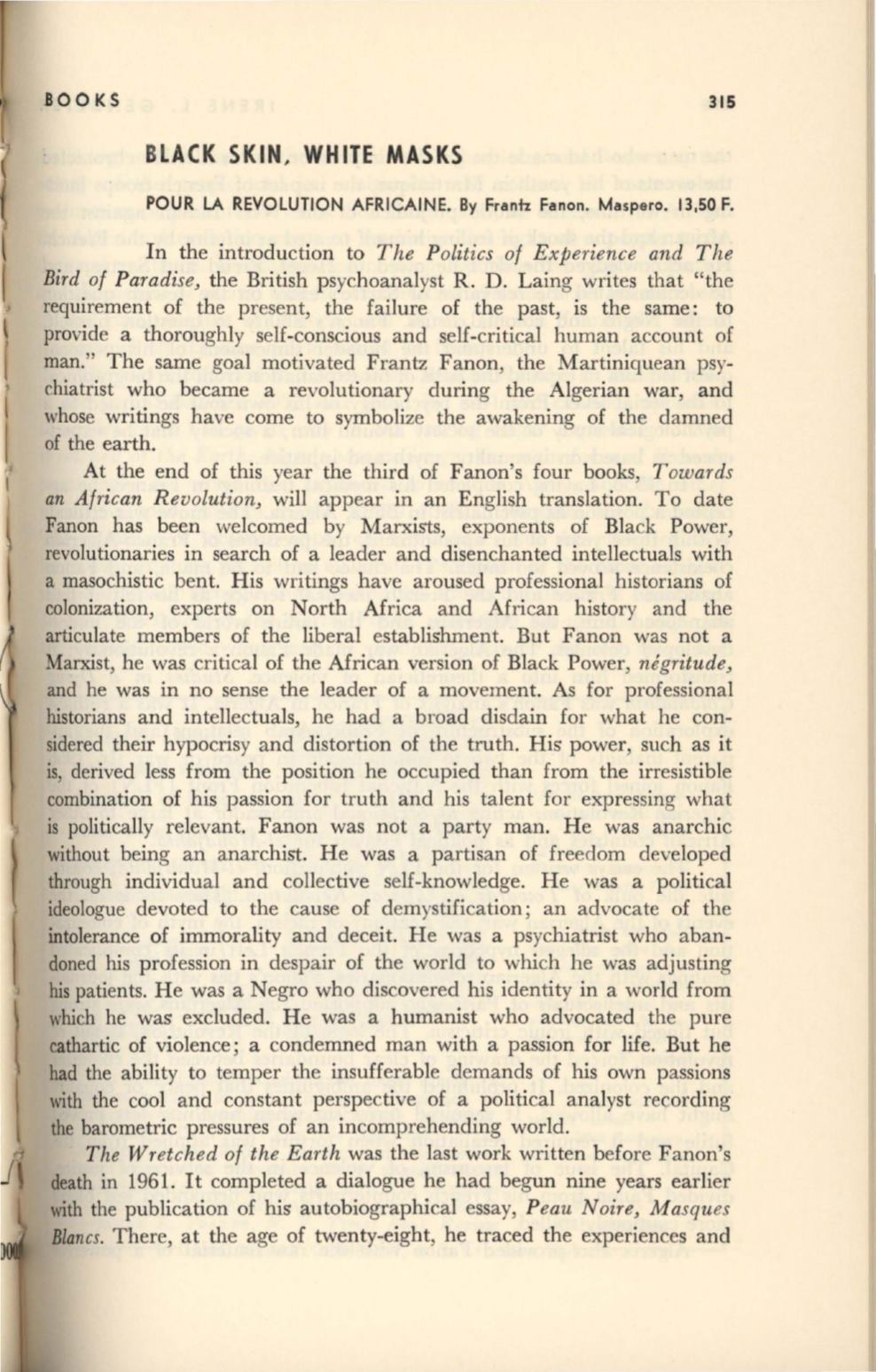
BOO KS
315
BLACK SKIN, WHITE MASKS
POUR LA REVOLUTION AFRICAINE.
By
Frantz Fanen. Maspere. 13,50 F.
In the introduction to
The Politics of Experience and The
Bird of Paradise,
the British psychoanalyst R. D. Laing writes that "the
requirement of the present, the failure of the past, is the same: to
provide a thoroughly self-conscious and self-critical human account of
man." The same goal motivated Frantz Fanon, the Martiniquean psy–
chiatrist who became a revolutionary during the Algerian war, and
whose writings have come to symbolize the awakening of the damned
of the earth.
At the end of this year the third of Fanon's four books,
Towards
an African Revolution,
will appear in an English translation. To date
Fanon has been welcomed by Marxists, exponents of Black Power,
revolutionaries in search of a leader and disenchanted intellectuals with
a masochistic bent. His writings have aroused professional historians of
colonization, experts on North Africa and African history and the
articulate members of the liberal establishment. But Fanon was not a
Marxist, he was critical of the African version of Black Power,
negritude,
and he was in no sense the leader of a movement. As for professional
historians and intellectuals, he had a broad disdain for what he con–
sidered their hypocrisy and distortion of the truth. His power, such as it
is, derived less from the position he occupied than from the irresistible
combination of his passion for truth and his talent for expressing what
is politically relevant. Fanon was not a party man. He was anarchic
without being an anarchist. He was a partisan of freedom developed
through individual and collective self-knowledge. He was a political
ideologue devoted to the cause of demystification; an advocate of the
intolerance of immorality and deceit. He was a psychiatrist who aban–
doned his profession in despair of the world to which he was adjusting
his patients. He was a Negro who discovered his identity in a world from
which he was excluded. He was a humanist who advocated the pure
cathartic of violence; a condemned man with a passion for life. But he
had the ability to temper the insufferable demands of his own passions
with the cool and constant perspective of a political analyst recording
the barometric pressures of an incomprehending world.
The Wretched of the Earth
was the last work written before Fanon's
death in 1961.
It
completed a dialogue he had begun nine years earlier
with the publication of his autobiographical essay,
Peau Noire, Masques
Blanes.
There, at the age of twenty-eight, he traced the experiences and


